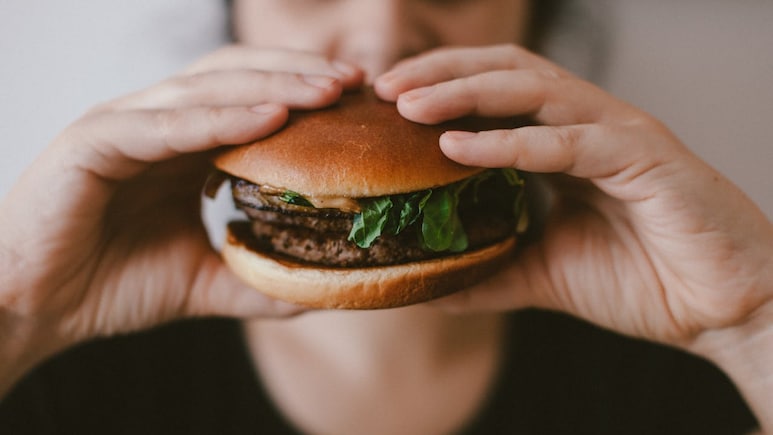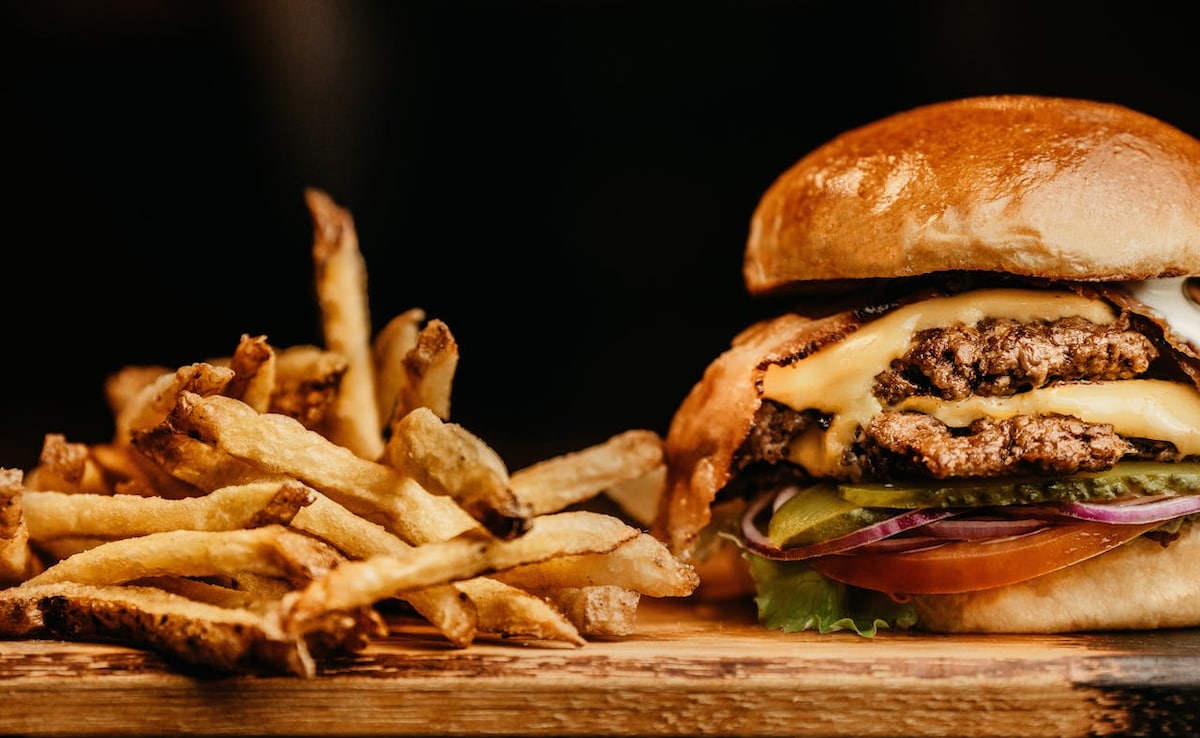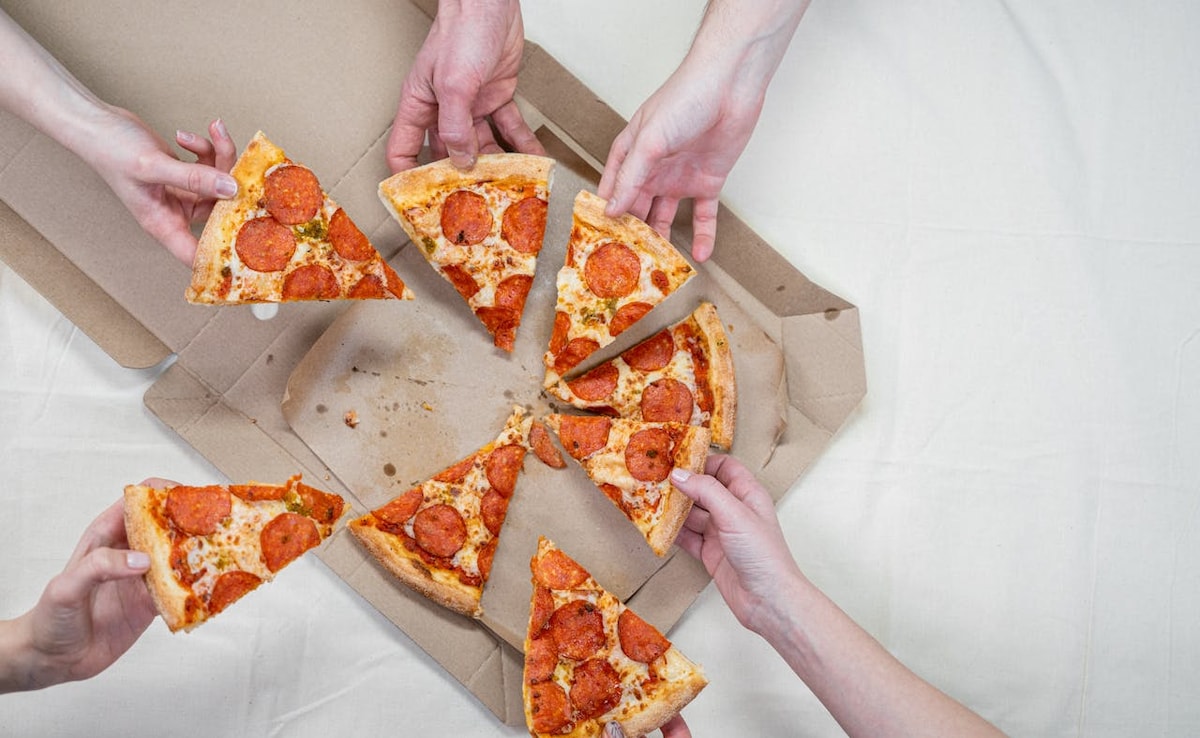
It's 10 pm, you're exhausted, and with a few taps on your phone, a pizza, burger, or fries is at your doorstep. For millions of Indians, particularly urban youth, this isn't an occasional indulgence anymore; it's a routine. This convenience-driven dependence on fast food is increasingly being described as fast food addiction. According to Dr. Anu Mathew, Consultant Endocrinology at Fortis Hospital, Manesar, while it's not a medically diagnosable addiction like nicotine or alcohol, the behavioural pull of high-fat, high-sugar, and high-salt foods is equally addictive. "Taste, easy availability at your doorstep, and no effort by self, make fast food extremely comforting and difficult to give up," she notes.
The consequences are showing up earlier than ever before. "We are definitely seeing a higher number of obesity, PCOS, and diabetes cases in young people compared to a decade ago," Dr. Mathew warns. Let's explore how fast food addiction is reshaping Indian health, why convenience eating has become the default, its long-term side effects on metabolism and mental well-being, and the small but effective steps individuals can take to reclaim control over their plates.
Is Fast Food Addiction Real?
Dr. Mathew clarifies that fast food addiction is "mostly a behavioural pattern." Yet, its effect on the brain is remarkably similar to substance use. Research shows that high-sugar and high-fat foods stimulate the brain's dopamine reward pathways, reinforcing cravings just like nicotine or drugs.
That explains why you crave fries even when you're not hungry. It's less about nutrition and more about a brain wired for instant gratification.

Photo Credit: Pexels
How Convenience Has Changed Eating In India
With food delivery platforms offering 24x7 access, fast food is no longer tied to special occasions. "Stress, academic/work pressure, and lack of cooking skills lead to fast food dependence: it is easily available, cheap, and saves time and effort," says Dr. Mathew.
Marketing adds fuel. Aggressive advertising, celebrity endorsements, and combo discounts make fried chicken and cheesy pizzas more appealing than home-cooked dal and sabzi. A 2021 study from AIIMS and ICMR flagged that marketing plays a critical role in shaping youth food choices, often pushing calorie-dense, nutrient-poor foods.
The Side Effects Of Fast Food Dependence
a) Metabolic & Physical Risks
Dr. Mathew warns: "Youth consuming fast food multiple times a week face very high risk of obesity, diabetes, dyslipidemia, fatty liver, and cardiovascular disease". Studies confirm that diets heavy in ultra-processed foods are directly linked to higher mortality and heart disease risk.
b) Gut Health & Digestion
"Convenience eating leads to poor digestion and alters gut bacteria, which in turn causes metabolic dysfunction," she explains. Research on gut microbiome shifts shows processed foods reduce microbial diversity, impacting immunity and metabolism.
c) Hormonal Disorders
India is witnessing an alarming rise in PCOS and early-onset diabetes. High sugar and fat diets exacerbate insulin resistance, fuelling these conditions.
d) Mental Well-Being
Beyond the body, poor nutrition worsens stress and mood swings. A 2019 Lancet Psychiatry review showed strong links between processed diets and higher rates of depression.

Photo Credit: Pexels
Can Fast Food Ever Be Healthy?
"Unlikely," says Dr. Mathew bluntly. While some chains market grilled wraps or salads, hidden sodium, oils, and preservatives still make them less than ideal. Even in moderation, fast food should be treated as an occasional indulgence, not a regular dietary staple.
Breaking The Cycle: Prevention And Precautions
Dr. Mathew advises that breaking free from fast food dependence is "difficult but doable". Here are practical strategies:
- Mindful Eating: Plan meals, avoid impulsive late-night orders.
- Healthy Swaps: Keep cut fruit, roasted chana, or makhana ready to replace fries or chips.
- Cooking Skills: Basic 15-minute meals (like poha, upma, or besan chilla) can compete with fast food convenience.
- Stress Management: Exercise and adequate sleep reduce emotional eating triggers.
- Balanced Lifestyle: "A more disciplined life and a good work-life balance are key to breaking this cycle," she stresses.
Parents and schools can also play a role by limiting junk food availability and encouraging traditional, seasonal diets.
Fast food addiction is not just about taste. It's about how convenience and marketing rewire behaviour. But the health costs are steep: obesity, diabetes, hormonal disorders, and even mental health decline. The good news? With awareness, small lifestyle tweaks, and discipline, young Indians can move beyond the "quick fix" culture towards healthier, more sustainable eating.
Disclaimer: This content including advice provides generic information only. It is in no way a substitute for a qualified medical opinion. Always consult a specialist or your own doctor for more information. NDTV does not claim responsibility for this information.
References:
Gearhardt, A. N., Yokum, S., Orr, P. T., Stice, E., & Corbin, W. R. (2011). The association of "food addiction" with disordered eating. Appetite, 57(3), 765-770.
Mishra, A., Sharma, S., & ICMR-AIIMS team. (2021). Food marketing and dietary practices among Indian adolescents. Indian Journal of Public Health, 65(3), 253-259.
Srour, B., et al. (2019). Ultra-processed food intake and risk of cardiovascular disease: prospective cohort study. BMJ, 365, l1451.
Valdes, A. M., Walter, J., Segal, E., & Spector, T. D. (2018). Role of the gut microbiota in nutrition and health. BMJ, 361, k2179.
Firth, J., et al. (2019). Food and mood: how diet and nutrition affect mental wellbeing. The Lancet Psychiatry, 6(5), 375-386.
Track Latest News Live on NDTV.com and get news updates from India and around the world

